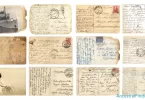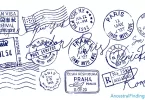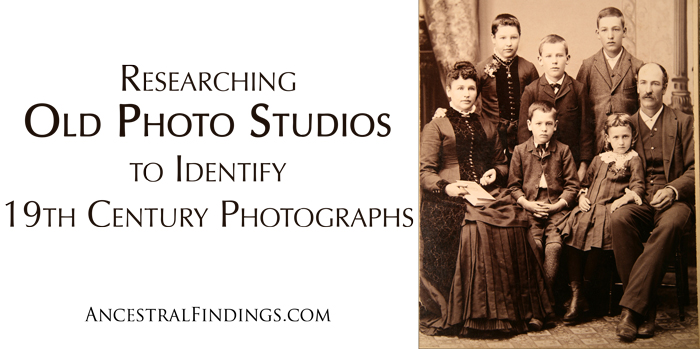As a genealogist, your family and friends probably know you are a collector of all information and artifacts of a historical nature. It's just what we, as people with a passion for genealogy, do. Most serious genealogists will occasionally be given some family history information, family photos, or even heirlooms that don't belong to their family. Friends and distantly connected family members (usually ones connected by marriage) are typically the ones to hand these things over to you, because they know you will take good care of it, when they themselves don't know what to do with it. You don't have to just toss it in a file or closet and forget about it, though. You can often find the people who should rightfully have these things.
In fact, you should look for the proper owners of these items. Repatriating homeless family information and heirlooms can be extremely rewarding, especially when the person or family the items belong to are excited and grateful to have them. It is performing a good genealogical deed, and it generates goodwill in the genealogical community that may eventually come back to benefit you when someone repatriates a long-lost family heirloom from your family to you.
I once had the incredible opportunity to do this, and it was so rewarding on so many levels. My great-uncle, who was an uncle by marriage and was married to my grandmother's sister, was abandoned by his father when he was four years old and by his mother when he was about eight years old. He never saw his dad again and only saw his mother rarely. He and his sister, older brother, and identical twin brother were raised by their aunt and grandmother. His sister married late in life and never had kids, he and my great-aunt weren't able to have kids, and his twin brother only had one child who did not have children. His older brother had one daughter but died at age 22 when the daughter was only a year and a half old. The girl's mother took her out of the family, and my great-uncle had no idea what happened to her.
After my great-aunt and great-uncle died, I inherited a lot of their personal belongings, including photos of the older brother who died, a wallet that belonged to him, and a Bible with his name inscribed in on the first page as a gift to him when he was 12 years old. I didn't know what to do with these things, but kept them, because I thought they would mean something to someone one day, and I didn't want my great-uncle's brother to be forgotten.
A couple of years later, a woman in her early 70's wrote to the church in my hometown where my great-aunt and great-uncle had been members. She was looking for information on her father's family. Her first name and her father's name indicated she was this missing daughter, and the church forwarded the letter to me, knowing I was the genealogist for the family. I got in touch with her, confirmed she was the missing daughter, and sent her everything I had that belonged to the father she did not remember, including the photos of him, and photos of others on his side of the family. She sent me flowers, and called me crying with happiness. She was in her 70's and had never even seen a photo of her father, and the photos of other family members I sent her let her know where she got her looks, as she looked nothing like her mother, but just like her father's side of the family. She started a box of the things I sent her to hand down to her seven children, who were single-handedly carrying on this family line. Not only was she thrilled, but she and I became good friends, and I helped her find when both of her paternal grandparents died, where they were buried, and what became of the fifth child her grandmother had after her divorce (it turns out she raised him until he was five, when he required reconstructive surgery from an accident, then gave him up for adoption to her employer and his family, and I got in touch with the adoptive family who confirmed it all).
You, too, can experience this level of personal reward by repatriating items to their correct families. You can wait for people to contact you. Or, you can be more proactive in finding these people. Some things you can do include:
- Putting notices on genealogical message boards
- Tracing the line of descent from the item's original owner to descendants who are alive today, and contacting them
- Talking to people related to the person who gave you the item, who will refer you to other people, and so on until you find the rightful owners of the item
Do these things and enjoy the emotional rewards and new friendships you will make by repatriating heirlooms to their families of origin.




